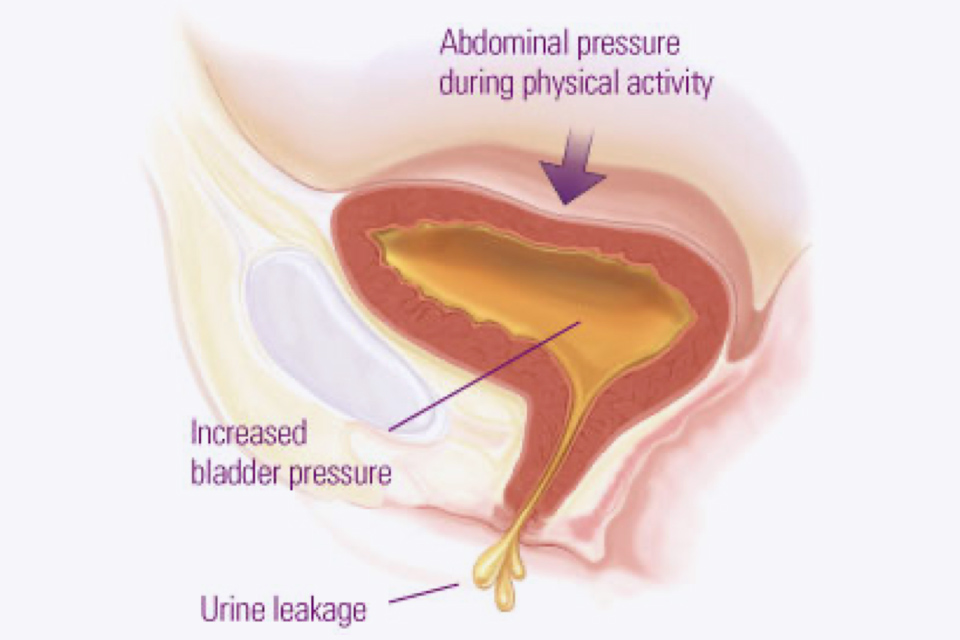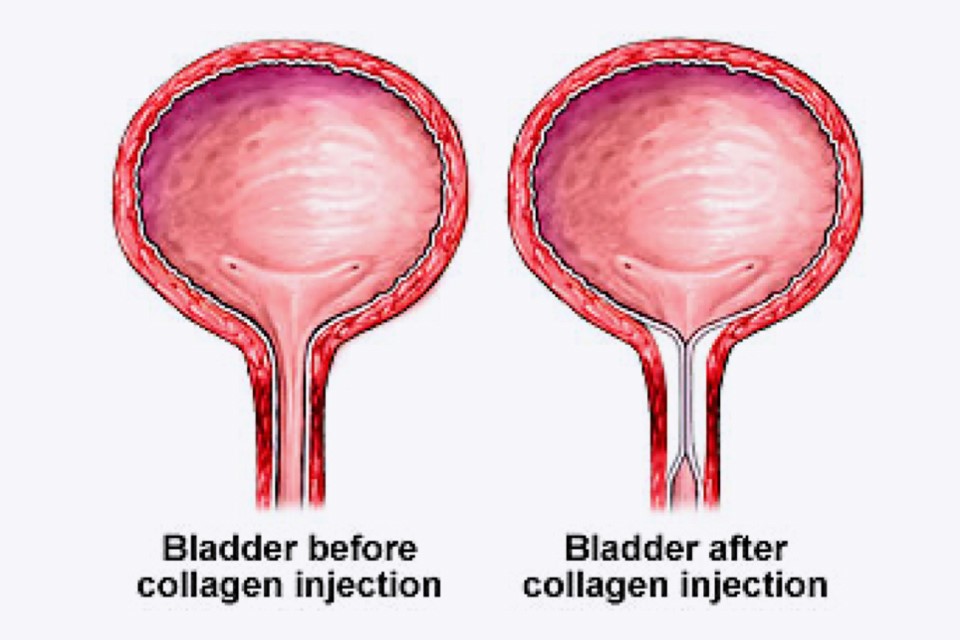Stress Incontinence
Of the three to six million women diagnosed with urinary incontinence in the U.K., a majority suffer from stress incontinence. Stress incontinence occurs when the pressure in the bladder increases more than the strength of the urethra to stay closed (the urethra is the tube from the bladder through which urine passes out of the body). A sudden extra pressure such as that caused by exercise, coughing, sneezing, laughing or lifting heavy objects can cause urine to leak from the urethra. 1 in 5 women have some degree of stress incontinence though the number may be higher as many hide their condition due to embarrassment.

The urethra may not be able to stay closed if your pelvic floor muscles are weak or damaged or there is damage to the urethral sphincter (the ring of muscle around the opening of the bladder keeping the urethra closed), loss of urethral strength can be caused by:
- Nerve damage during childbirth
- Increased pressure on your tummy, for example pregnancy or being very overweight
- Damage to the bladder due to surgical procedures such as hysterectomy
- A lack of the hormone oestrogen as seen in the menopause
- Neurological conditions such as Parkinson’s disease
- Medicines such as diuretics, antidepressants and sedatives
If you tend to leak a small to moderate amount of urine, especially when you cough, sneeze or laugh, consider visiting your GP or practice nurse. Initial investigation should involve providing a urine specimen to exclude infection and an examination to rule out pelvic floor prolapse or other causes such as large fibroids pressing on the bladder.

Treatments for stress incontinence
Our specialised pelvic floor physiotherapists at the Beaumont Hospital can assess your symptoms and provide a tailored program with biofeedback to maximise success. Instruction in proper technique along with ongoing supervision can often give better results than ‘DIY’ pelvic floor exercises found on the internet or patient leaflets.
Surgery for stress incontinence
Surgery is considered when conservative measures have failed, if you plan to have more children, this may affect your decision as the physical strain of pregnancy and childbirth can sometimes cause surgical treatments to fail and you may therefore wish to delay surgery.
There is currently a pause on the use of vaginal mesh tapes/slings to treat stress incontinence and so this procedure is unlikely to be available at present. Updates will be posted on this website in the ‘News’ section if the situation changes. Further information is available here.
Colposuspension
Colposuspension used to be the commonest procedure to treat stress incontinence but was largely superceded by the less invasive TVT mesh tape/sling procedure.
A colposuspension involves making an incision in your bikini line and lifting up the neck of your bladder. Stitches through the walls of the vagina either side of the bladder neck hold it in place. The procedure is a major operation, requiring 2-3 nights stay in hospital and 6 weeks recovery time.
Sling procedures
Sling procedures involve making an incision in your bikini line and inserting a sling around the neck of the bladder to support it. The sling could be made of:
- A synthetic material
- Tissue taken from another part of your body (an autologous fascial sling)
- Tissue donated from another person (an allograft sling)
- Tissue taken from an animal (a xenograft sling), such as cow or pig tissue
Sling surgery is not commonly performed now, as it is quite a major operation.
Urethral bulking agents
A urethral bulking agent is a substance that is injected into the walls of your urethra (the tube that carries urine from the bladder to outside the body). This increases the thickness of the urethral walls and allows the urethra to stay closed with more force. A number of different bulking agents are available and there is no evidence that one is more beneficial than another. Bulking agent success rates are approximately 30-40%.
Bulking agents are less invasive than other surgical treatments as they do not require any incisions. However, they are less effective than the other options. The effectiveness of the bulking agents will reduce with time and you may need repeated injections.


